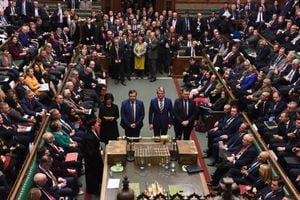Express & Star comment: Steer clear of election predictions
The early stages of the election campaign have, predictably, been dominated by the two main parties.

The Conservatives spent the early part of the week moving from one calamity to the next, before Labour’s internal struggles took over the spotlight in recent days.
Undoubtedly, the clashes between Mr Corbyn and Mr Johnson will garner most of the headlines until the election is done and dusted on December 13.
But as the campaign moves on, it will be interesting to see how much of a role the so-called minor parties will play.
The Liberals have undergone a resurgence of late, seemingly galvanised by the emergence of Jo Swinson as leader.
Her party’s mission to stop Brexit by revoking Article 50 will perhaps not gain much support in the Leave areas of the Midlands.
But elsewhere in the country the Lib Dems could well take seats, particularly in places where Labour Remainers can no longer bring themselves to vote for Jeremy Corbyn’s party.
To add to the intrigue, the pact Ms Swinson’s party has entered into with the Greens and Plaid Cymru in an effort to maximise the Remain vote could well prove to be crucial.
At the other end of the Brexit spectrum, Nigel Farage is promising to be a thorn in Boris Johnson’s side by standing 600 candidates fighting for what he calls a “proper” Brexit.
As yet, no Brexit Party candidates have been officially confirmed, although the threat alone has been enough to set the cat amongst the pigeons at Conservative HQ.
There is also the chance that Mr Farage’s party could hurt Mr Corbyn by hoovering up former Labour voters who cannot bring themselves to vote Tory.
The truth is, the very last thing that Labour and the Conservatives need is two other parties who appear to be capable of having an impact on the destinations of dozens of marginal seats.
It all makes for a fascinating contest, and demonstrates why next month’s election is the most difficult to predict in decades.





